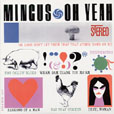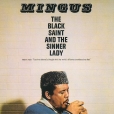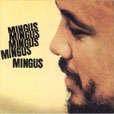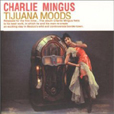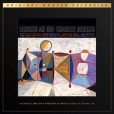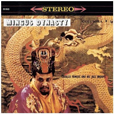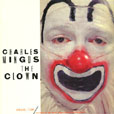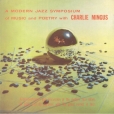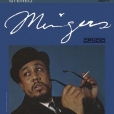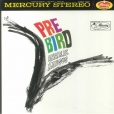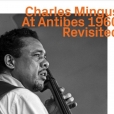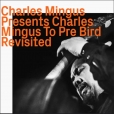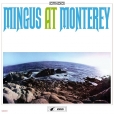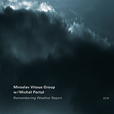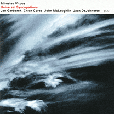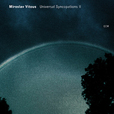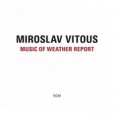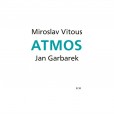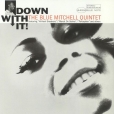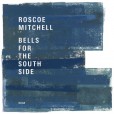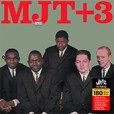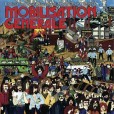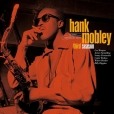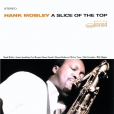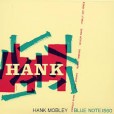Your basket is empty

Thrillingly uncontainable, uproarious, wildly creative music, teeming with passion, protest, sex, orality, dread, blues, and the gospel truth. With Roland Kirk newly enrolled, Mingus passes his bass to Watkins… and it all kicks off. We can’t recommend this record strongly enough. It will do you good.
A masterpiece from the same few months in 1963 as The Black Saint And The Sinner Lady, adding a couple more players to its killer lineup of Booker Ervin, Jaki Byard, Charlie Mariano and co. A kind of testimonial match by the eleven-piece, doing over some of Mingus’ best tunes so far: he didn’t take a group back into the studio till 1970.
LP from Speakers Corner.
‘I am trying to play the truth of what I am. The reason it’s difficult is because I’m changing all the time.’ From 1957, hard on the heels of Pithecanthropus Erectus — hotter fire, and another masterpiece, featuring killer soloing from CM. On Haitian Fight Song: ‘I can’t play it right unless I’m thinking about prejudice and persecution, and how unfair is it. There’s sadness and cries in it, but also determination. And it usually ends with my feeling ‘I told them! I hope somebody heard me!’’ Reincarnation Of A Lovebird is here, too.
From 1960; ostensibly before Mingus heard Charlie Parker.
A host of stellar players — including Eric Dolphy, Booker Ervin, Max Roach, Marcus Belgrave, Slide Hampton, Yusef Lateef — in variously large ensembles, reading mostly tight, post-Duke scores.
Kicks off startlingly with a mash-up of Take the A Train, in the left channel, and Exactly Like You in the right. ( On the flip, Do Nothin’ Till You Hear From Me is likewise bundled with I Let a Song Go Out of My Heart.)
The great Mingus art songs Eclipse — hymning black-white relationships — and Weird Nightmare are here. Apparently vocalist Lorraine Cusson fluffed the last line of Nightmare — singing ‘Bring me a heart with a love of gold’ instead of ‘Bring me a love with a heart of gold’ — but Mingus was so happy with the take, he let it go.
Presents CM is unmissable. The cool and deadly b-line funk of Folk Forms gives way to a New Orleans funeral march; the Original Faubus Fables is irresistible, knockabout antifa, straight to the head of a dingus; What Love showcases brilliant interplay between Mingus and Dolphy; All The Things rages freely about Mental Health.
Pre Bird is from 1960 but ostensibly before Mingus heard Charlie Parker.
A host of stellar players — including Eric Dolphy, Booker Ervin, Max Roach, Marcus Belgrave, Slide Hampton, Yusef Lateef — in variously large ensembles, reading mostly tight, post-Duke scores.
It kicks off with a startling mash-up of Take the A Train, in the left channel, and Exactly Like You in the right. ( On the flip, Do Nothin’ Till You Hear From Me is likewise bundled with I Let a Song Go Out of My Heart.)
The great Mingus art songs Eclipse — hymning black-white relationships — and Weird Nightmare are here. Apparently vocalist Lorraine Cusson fluffed the last line of Nightmare — singing ‘Bring me a heart with a love of gold’ instead of ‘Bring me a love with a heart of gold’ — but Mingus was so happy with the take, he let it go.
With Chick Corea, piano; John McLaughlin, guitar; Miroslav Vitous, double-bass; Jack DeJohnette, drums.
The Weather Report bassist brilliantly driving a core group including a bandoneon, three saxes, two drummers and Randy Brecker through and around swells of orchestra and choir. Ambitious and original.
‘In 1969, the Art Ensemble of Chicago arrived at the Théâtre du Vieux Colombier in Paris and a new fuse was lit. Their multi-instrumentalism made use of a varied multiplicity of ‘little instruments’ (including bicycle bells, wind chimes, steel drums, vibraphone and djembe: they left no stone unturned), which they employed according to their inspirations. The group’s stage appearance shocked as well. They wore boubous (traditional African robes) and war paint to venerate the power of their free, hypnotic music, directly linked to their African roots. They were predestined to meet up with the Saravah record label (founded in 1965 by Pierre Barouh), already at the vanguard of as-yet unnamed world music. Brigitte Fontaine’s album Comme à la Radio, recorded in 1970 after a series of concerts at the Théâtre du Vieux Colombier, substantiated the union of this heiress to the poetic and politically committed chanson francaise (Magny, Ferré, Barbara) together with the Art Ensemble of Chicago’s voodoo jazz and the Arab tradition perpetuated by her companion Areski Belkacem…’
Remarkable 1966 lineup, with James Spaulding, Lee Morgan, Howard Johnson and Kiane Ziwadi in the brass line — the title track reminds you where the Hypnotics are coming from — and McCoy Tyner, besides.
